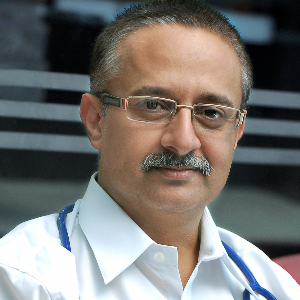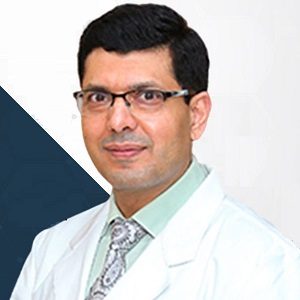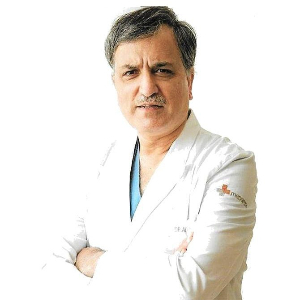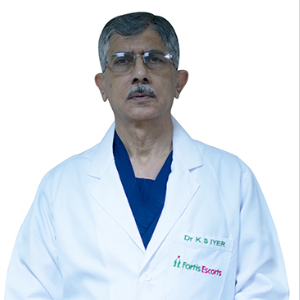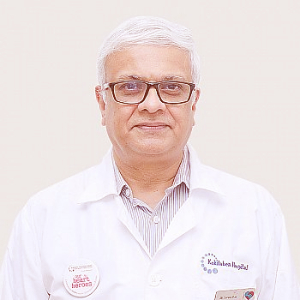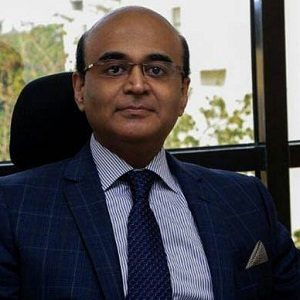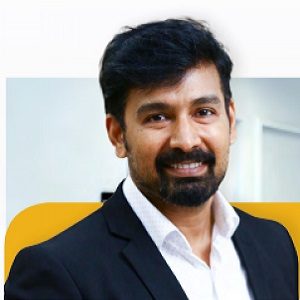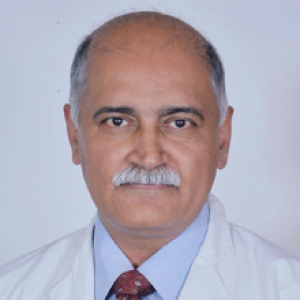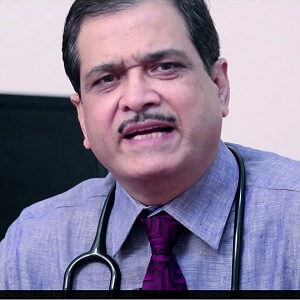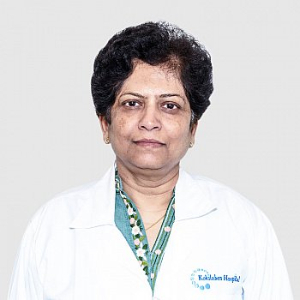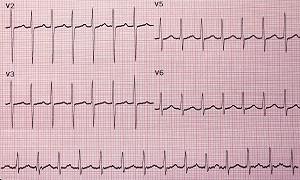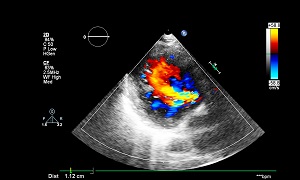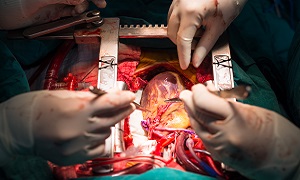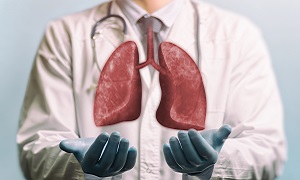Best Doctors in India for Pulmonary Hypertension Treatment
- Pediatric Cardiac Surgeon, New Delhi, India
- Over 30 years’ experience
- Marengo Asia Hospital, Faridabad
Profile Highlights:
- Dr. Rajesh Sharma is one of the most experienced and widely acclaimed Cardiothoracic and Vascular surgeons specializing in pediatric cardiac surgery in India.
- He provides treatment for both adult and pediatric heart diseases and disorders and focuses primarily on complex congenital heart diseases.
- Dr. Sharma’s expertise lies in infant and Neonatal cardiac surgery, surgery for transposition of the great arteries, Fontan circulation, and acquired heart diseases.
- His experiences encompass over 3 decades during which he has performed over 20,000 heart surgeries including congenital heart disorders as well as acquired heart defects.
- Top Pediatric Cardiologist | Fortis Escorts, New Delhi, India
- 23 Years Experience
- Fortis Escorts Heart Institute New Delhi
Profile Highlights:
- Dr. Ashutosh Marwah is a highly esteemed Director Paediatric Cardiologist practicing at Fortis Escorts Heart Institute, Okhla Road, New Delhi.
- With over 23 years of dedicated experience in the field.
- Dr. Marwah’s educational background includes an MBBS, MD in Paediatrics, and a specialized Fellowship in Paediatric Cardiology from Melbourne.
- Cardio Thoracic & Vascular Surgeon, Gurugram, India
- Over 35 years’ experience
- Medanta-The Medicity, Gurgaon
Profile Highlights:
- Dr. Anil Bhan is an excellent Cardiovascular and thoracic surgeon who has performed more than 15,000 cardiac and vascular surgeries that include heart transplant surgery, aortic aneurysm surgery, pediatric cardiac surgery, valve repairs, and peripheral vascular surgery among several others.
- He is one of the best pediatric cardiac surgeons in Delhi/ NCR and is credited with performing heart bypass surgery on the youngest patient in India in 2007 (18 months).
- He performed the first extracorporeal membrane oxygenation (ECMO) and was the first to use a harmonic scalpel for harvesting radial mammary artery conduits in India in 2000 and 1995 respectively.
- Top Pediatric Cardiac Surgeon | Fortis Escorts, New Delhi, India
- 40+ Years Experience
- Fortis Escorts Heart Institute New Delhi
Profile Highlights:
- Dr. Krishna Subramony Iyer is one of the best Pediatric Cardiac surgeons in India and specializes in congenital heart diseases.
- He has been practicing pediatric cardiac surgery for over 4 decades and has performed more than 10,000 surgeries through various procedures like double switch operation TAPVC repairs, Fontan and Fontan, arterial switch, and DORV.
- Dr. Iyer has been associated with Escorts Heart Institute for a long time and is responsible for establishing the first pediatric cardiac care program in North India in 1995.
- Top Pediatric Cardiac Surgeon | Kokilaben Hospital, Mumbai, India
- 37+ Years Experience
- Kokilaben Dhirubhai Ambani Hospital
Profile Highlights:
- Dr. Suresh Rao is a highly experienced cardiac surgeon specializing in congenital heart diseases and has performed more than 12,000 surgeries for congenital heart diseases and disorders.
- Dr. Rao holds an extensive experience of over 37 years in Pediatric and congenital cardiac surgery and has performed numerous simple and complex heart defect surgeries with successful outcomes.
- Dr. Suresh Rao introduced the Modified Ultrafication procedure after congenital heart surgery in India and has used the procedure in the treatment of a large number of pediatric as well as adult patients.
- Pediatric Cardiac Surgeon, Cardiothoracic and Vascular Surgeon, Chennai, India
- Over 25 years’ experience
- Apollo Children Hospital Chennai
Profile Highlights:
- Dr. Neville Solomon is a distinguished Pediatric Cardiac Surgeon with over 25 years of experience in the field, currently serving as the Head of the Department of Pediatric Cardiac Surgery at Apollo Children’s Hospital, Greams Road, Chennai.
- Renowned for his exceptional skills and dedication, Dr. Solomon has conducted over 6000 heart surgeries, addressing complex congenital heart conditions in both infants and adults.
- His commitment to advancing medical care for children with heart conditions has positioned him as a leading expert in his field.
- Paediatric Cardiologist, Chennai, India
- Over 10 years’ experience
- Apollo Children Hospital Chennai
Profile Highlights:
- Dr. Muthukumaran C S is one of the finest Heart Specialists in India. He has successfully operated on more than 2500 cardiac catheterizations in children, 1000 AD closures, 250 VSD closures, and 700 PDA closures.
- The Medical practitioner has been associated with various reputed hospitals in India. Dr. Muthukumaran C S has been associated with many hospitals over the course of his illustrious and experienced career.
- Top Cardiac Surgeon | Max Hospital, Saket, New Delhi, India
- 29+ Years Experience
- Max Super Specialty Hospital, Saket, New Delhi
Profile Highlights:
- Dr. Kulbhushan Singh Dagar, a pioneer and an expert in the cardiology field earned his reputation through his exceptional performance in the field of complex congenital heart defects, especially for newborns.
- With over 29 years of experience, Dr. Dagar has dedicatedly performed complex surgical procedures by implementing innovative techniques and cutting-edge technologies in his procedures and is currently considered an asset to the cardiac industry, not just nationally, but internationally too!
- Top Interventional Cardiologist | Apollo Hospital, New Delhi, India
- 26+ Years Experience
- Indraprastha Apollo Hospital, New Delhi
Profile Highlights:
- Dr. Rajeev Kumar Rajput is one of the best Cardiologists in India with nearly 23 years of experience. He is a clinical cardiologist engaged in diagnosing and treating cardiovascular diseases.
- Dr. Rajput is currently working as a senior consultant with Indraprastha Apollo Hospitals, New Delhi, and also offers patient care at the Heart & Gynae Clinic.
- Dr. Rajeev Kumar Rajput specializes in Angiography and Interventional Cardiology. The treatments provided involve Neonatal and Infant cardiac surgeries, Device Closure, and Valve replacement. He has expertise in Aortic Aneurysm Surgery, Vascular Surgery, Percutaneous Coronary Interventions, Endovascular Repair, Cardiac Catheterisation, Open Heart Surgery, and MV replacement.
- Dr. Rajput is credited with publishing several papers in noted medical journals.
- Top Pediatric Cardiologist | Kokilaben Hospital, Mumbai, India
- 20+ Years Experience
- Kokilaben Dhirubhai Ambani Hospital
Profile Highlights:
- Dr. Snehal Kulkarni is a renowned pediatric cardiologist who specializes in the management and treatment of fetal cardiac diseases, non-invasive pediatric cardiology, and Adult Congenital heart diseases.
- She is an expert in Diagnostic and Interventional Cardiac Catheterization, Stent implantation, Cardiac Pathology, and Balloon dilatation.
- She has more than 2 decades of experience in pediatric cardiology and has acquired her training from prestigious institutions in USA.
Best Hospitals in India for Pulmonary Hypertension Treatment
- City: New Delhi, India
Hospital Highlights:
- Over the last 33 years, the Fortis Escorts Heart Institute has set new standards in cardiac treatment with groundbreaking research. It is now known around the world as a centre of expertise for Cardiac Bypass Surgery, Interventional Cardiology, Non-invasive Cardiology, Paediatric Cardiology, and Paediatric Cardiac Surgery.
- The hospital has cutting-edge laboratories that perform a wide range of diagnostic tests in Nuclear Medicine, Radiology, Biochemistry, Haematology, Transfusion Medicine, and Microbiology.
- Fortis Escorts Heart Institute boasts a diverse group of bright and experienced doctors who are backed up by a team of highly qualified, experienced, and devoted support professionals as well as cutting-edge equipment such as the recently installed Dual CT Scan.
- Approximately 200 cardiac doctors and 1600 personnel currently collaborate to manage over 14,500 admissions and 7,200 emergency situations each year. The hospital now has a 310-bed infrastructure, as well as five cath labs and a slew of other world-class amenities.
- City: Faridabad
Hospital Highlights:
In the sprawling city of Faridabad, where healthcare needs are diverse and ever-evolving, one institution has consistently stood out as a beacon of excellence in the field of medicine—Marengo Asia Hospital. Established with a vision to provide world-class healthcare services to the community it serves, Marengo Asia Hospital has emerged as a trusted name synonymous with quality, compassion, and innovation in healthcare.
- City: New Delhi, India
Hospital Highlights:
- Equipped with 650 beds, BLK-Max Super Speciality Hospital is the largest stand-alone private sector hospital in Delhi.
- With over 1500 healthcare providers and 150 globally renowned super specialists, the hospital is one of Asia’s largest BMT Centres. The hospital is known for having some of the best cancer doctors in the country.
- The hospital is NABH and NABL accredited and was inaugurated by the first Prime Minister of India. Pt. Jawahar Lal Nehru.
- City: Chennai, India
Hospital Highlights:
- Located in Chennai, India, MGM Healthcare is a top multispecialty hospital that provides all medical services under one roof.
- Since its founding in 2019, MGM Healthcare has quickly become a leading national referral centre, creating several innovative flagship initiatives.
- MGM Healthcare combines next-generation medical and digital technologies to provide better patient results.
- With 12 centres of excellence, more than 400 inpatient beds, 100 intensive care unit beds, and 24/7 emergency care, MGM Healthcare leaves no chance in redefining the patient experience in Chennai.
- MGM Healthcare boasts 250+ expert doctors across 30+ departments, including Cardiology, Pulmonology, Neurology, Obstetrics & Gynaecology, and more.
- They house 12 specialized Centres of Excellence, including Neurosciences, Orthopaedics, and Multi-Organ Transplantation.
- Their team of doctors, nurses, and paramedics works together to give every patient individualized treatment.
- City: Noida, India
Hospital Highlights:
- Fortis Hospital, Noida, stands as one of the oldest and most trusted healthcare institutions in the region, setting a benchmark for comprehensive medical care.
- As the second mega hub hospital in the Fortis Healthcare Group, Fortis Hospital, Noida, upholds a legacy of trust among more than 1.2 million patients. By integrating top-tier professionals with cutting-edge technology, the hospital delivers superior treatment across various medical disciplines.
- Specializing in advanced Neurosciences, Orthopedics, Kidney and Liver Transplant Programmes, Fortis Hospital, Noida has successfully performed over 1,500 transplants, solidifying its reputation as a leader in specialized medical interventions.
Pulmonary Hypertension
Pulmonary Hypertension is a type of high blood pressure that affects your arteries in the lungs as well as the right side of the heart. This condition is life-threatening and it generally gets worse over time. However, treatments can help you to lessen your symptoms so that you can live better with the disease. Although it may take some time, patients are generally able to live life normally, the way they did before their diagnosis.
In this condition, the tiny arteries in your lungs get narrow or blocked, which makes it harder for the blood to flow through them, which causes the blood pressure in your lungs to rise. This makes your heart work harder to pump blood through those arteries, and after a while the muscle of the heart gets weak. Eventually, it leads to heart failure.
Symptoms
The signs and symptoms of pulmonary hypertension develop slowly, and it takes take months or sometimes even years, for you to notice them. As the disease progresses, the symptoms get worse.
The symptoms of pulmonary hypertension include:
- Fatigue
- Chest pressure or pain
- Dizziness or fainting spells
- Swelling in your ankles and legs, and eventually in the abdomen
- Racing pulse or heart palpitations
- Bluish color to your lips and skin
Causes & risk factors
Sometimes your doctors are unable to find the reason for your high blood pressure in your lungs. In such cases, the condition is termed idiopathic pulmonary hypertension. Genes might play a role in why some people get this illness.
Sometimes, another condition can also lead to pulmonary hypertension, which can include any of these:
- Congestive heart failure
- Liver disease
- Lupus, scleroderma, rheumatoid arthritis, and other autoimmune diseases
- Blood clots in the lungs
- HIV
- Lung diseases like emphysema, chronic bronchitis, or pulmonary fibrosis
- Sleep apnea
- Illegal drug use
- A heart defect you’re born with
Having a family history of pulmonary hypertension, being obese or overweight, exposure to asbestos, taking illegal drugs such as cocaine, living at a high altitude, are some of the factors that can increase your risk of developing pulmonary hypertension.
Diagnosis
It is generally hard to diagnose this condition early as it is often not detected during a routine physical exam. Even when the condition is more advanced, this condition shows signs and symptoms that are similar to those of other heart and lung conditions.
Your doctor is first going to perform a physical exam and then talk to you regarding your signs and symptoms. You will be asked questions regarding your medical and family history.
Some of the tests that your doctor can order might include any of the following:
Blood tests
Chest X-ray
Electrocardiogram (ECG)
Echocardiogram
Right heart catheterization
Treatment
Pulmonary hypertension differs from person to person, and this is why your treatment plan will need to be specific to your needs. Generally, first, the doctor treats the cause of your condition. For example, if your problem is caused by another condition such as emphysema, then he/she will focus on treating it, to improve your pulmonary hypertension.
Many people also receive oxygen therapy, which is a form of treatment to improve their breathing. It can be extremely beneficial if you are short of breath, or if you have low oxygen levels in your blood. It can also help you live longer if you are having pulmonary hypertension. If you are at risk for blood clots, then your doctor might also recommend blood thinners.
Atrial septostomy
If medications don’t help your condition, then this open-heart surgery can be an option. This procedure involves your surgeon creating an opening between the upper left and right chambers of your heart, to relieve the pressure on the right side of your heart. It is to be noted, however, that this treatment may lead to serious complications, such as arrhythmia, heart rhythm problems.
Lung Transplant
In some cases, a lung or heart-lung transplant can be an option, especially for younger people who have idiopathic pulmonary arterial hypertension.
There are certain major risks to organ transplantation. This includes rejection of the transplanted organ, as well as a serious infection. You might also need to take immunosuppressant drugs for life in order to reduce the chances of rejection.
Complications
Some of the complications that this condition can lead to include:
- Right-sided heart enlargement and heart failure
- Arrhythmia
- Bleeding in the lungs
- Complications during pregnancy

